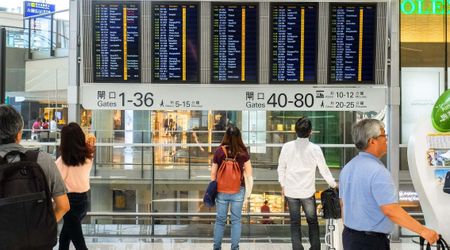As Working Americans Struggle to Pay Rent, Squatters Remain a Challenge for Landlords

Although rent continues to surge across major American cities, and young professionals struggle to find affordable accommodation, squatters taking advantage of existing laws to live rent-free are causing anguish and financial strain for property owners in New York. This issue has prompted calls for urgent action to address the legal loopholes that enable such behavior, per CBS News.

Instances of squatters exploiting legal protections to remain in properties without paying rent have become increasingly common. Property owners like Hong Chen who found themselves embroiled in lengthy and costly eviction battles, illustrate the dire consequences of this phenomenon. Chen lamented, "My tenants only pay me one month's rent, and they know the game. They know after 30 days you cannot evict them." Such situations often force property owners to bear substantial financial burdens, as exemplified by Susan Mascara, who drained her savings to maintain a property in Bayside inherited from her mother, only to face mounting debts and financial distress.
The tactics employed by squatters exacerbate the hardships faced by property owners such as Susan Mascara, who recounted how squatters deliberately sabotaged her property, leading to fines and legal repercussions. "They turned off the hot water and then reported that they had no hot water. It's a $250 fine per day, up to $15,000 punishable by five years in jail," she explained.

John Sochran, another affected property owner, expressed the financial strain of supporting a property without rental income. "I'm not getting any rent and I'm paying the gas and electric every month," he disclosed, highlighting the precarious financial situation faced by many due to the actions of squatters. These distressing accounts are echoed by numerous property owners who have sought assistance from City Council Member Vickie Paladino, desperate for relief from the burdens imposed by squatters.
Paladino, recognizing the urgency of the situation, advocates for legislative reform to address the root causes of squatter exploitation. She proposes extending the duration required for individuals to claim squatters' rights from 30 days to 180 days. "They own the property and they have no rights. Squatter rights, oxymoron. Squatters have no rights," asserts Paladino, emphasizing the need to prioritize the rights of property owners over those who exploit legal loopholes.

The impact of squatters extends beyond financial ramifications, as evidenced by the distress experienced by communities affected by their presence. One neighbor in Whitestone described feeling terrorized by the behavior of squatters who occupied a nearby property, engaging in disruptive and alarming activities. "7:30 in the morning there'd be people on the front lawn drinking beer, smoking pot," she recounted, highlighting broader societal issues caused by squatters.
Importantly, the issue of squatters transcends geographical boundaries, affecting various demographics across New York City. From apartment owners to retirees reliant on investment income, the threat posed by squatters looms large, exacerbating existing challenges faced by property owners. By addressing legal loopholes and prioritizing the rights of property owners, policymakers can mitigate the impact of squatter exploitation, safeguarding the well-being of communities across the city.






















